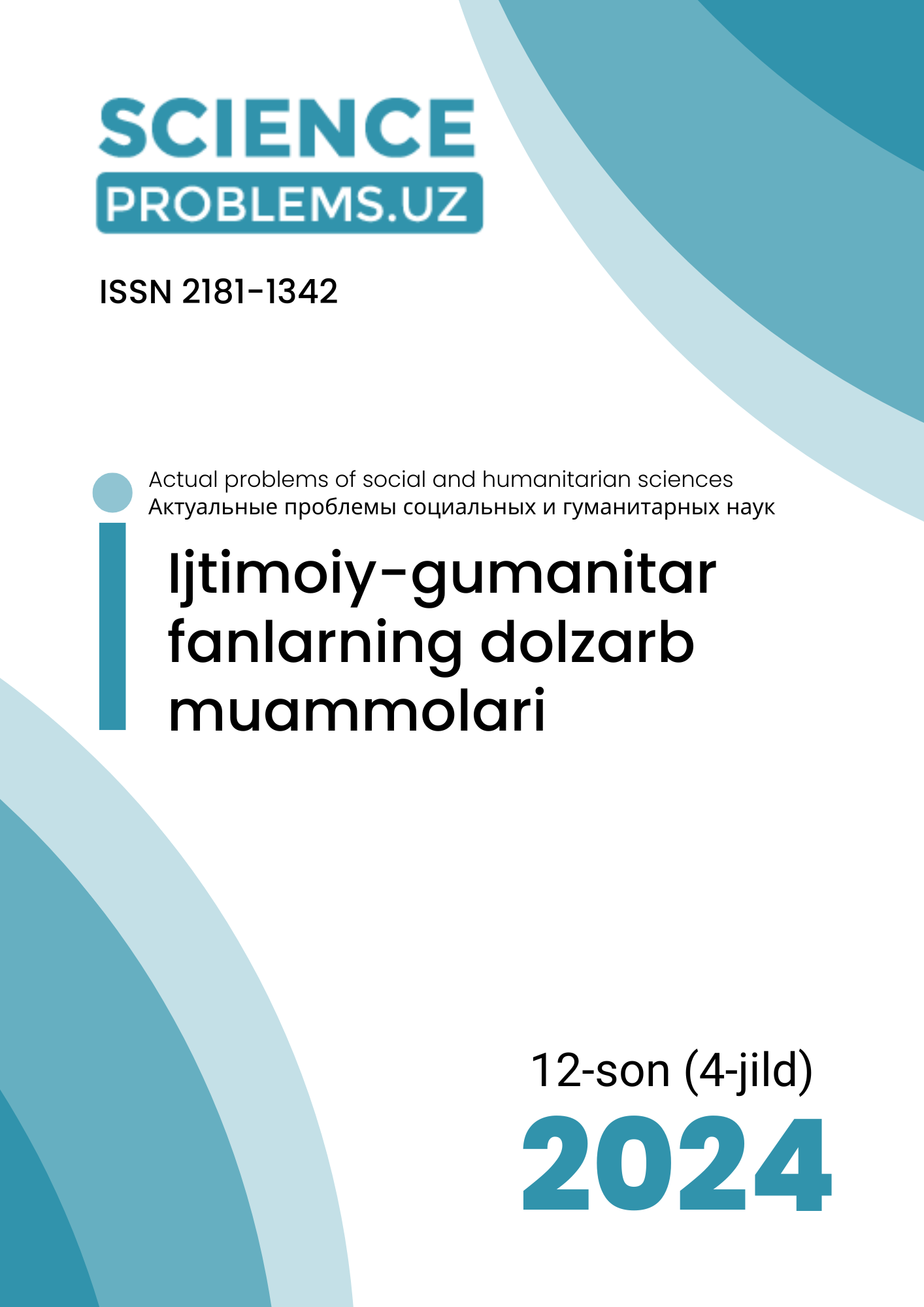OʻZBEKISTON IJTIMOIY TARMOQLARIDA YOSHLAR NUTQIDAGI OʻZGARISHNING TAʼLIM JARAYONIGA TAʼSIRI
Kalit so'zlar
https://doi.org/10.47390/SPR1342V4I12Y2024N58.3Kalit so'zlar
ijtimoiy tarmoqlar, yoshlar nutqi, ta’lim jarayoni, lingvistik qobiliyat, qisqartmalar, grammatik xatolar, aralash tillar, lingvistik mashg‘ulotlarAnnotasiya
Ushbu maqolada O‘zbekiston yoshlarining ijtimoiy tarmoqlardagi nutq uslubi va uning ta’lim
jarayoniga ta’siri o‘rganilgan. Tadqiqot davomida so‘rovnomalar, kontent tahlili va eksperimentlardan
foydalangan holda yoshlar nutqidagi grammatik xatolar, qisqartmalar va aralash tillardan foydalanish holatlari
tahlil qilindi. Natijalar ijtimoiy tarmoq nutqining ta’lim jarayoniga salbiy ta’sir ko‘rsatishini ko‘rsatdi, ammo
maxsus lingvistik mashg‘ulotlar yordamida bu holatni tuzatish imkoniyati mavjudligi aniqlandi. Tadqiqotning
amaliy ahamiyati shundaki, unda ta’lim tizimida innovatsion yondashuvlar va maxsus treninglarni joriy etish
bo‘yicha tavsiyalar ishlab chiqilgan. Ushbu maqola lingvistik qobiliyatlarni rivojlantirish va ijtimoiy tarmoq
kommunikatsiyasini ta’lim jarayoni bilan uyg‘unlashtirish bo‘yicha muhim ma’lumot beradi.
Manbalar
1. Ali S. Youth, social media, and online safety: a holistic approach towards detecting and
mitigating risks in online conversations (Doctoral dissertation). 2024.
2. Carpenter F. Education and Development in Central Asia: a case study on social change in
Uzbekistan. Brill. 2023.
3. Chelysheva I. Media literacy education in Uzbekistan, Kyrgyzstan and Turkmenistan.
International Journal of Media and Information Literacy, 4(1), 3-10. 2019.
4. Kondov. B. Issues of the Influence of Social Networks on the Spirituality of New
Independent Youth. Miasto Przyszłości, 40, 574-579. 2023.
5. Ngonso, B. F., & Egielewa, P. E. When values change values: assessing how social media
changes Nigerian youth communication patterns and values. JNMMC, 68, 1-8. 2018.
6. Polvannazirova S., & Makhmudov, R. The Overview of English Borrowings in Uzbek in
Mass Media and Social Network Discourse. Available at SSRN 5019590.
7. Ibrayeva, G., & Nurshaikhova, A. (2024, May). Emotional Dynamic and Opinion
Cumulation on Social Networks in Kazakhstan. In International Conference on Human-
Computer Interaction (pp. 95-106). Cham: Springer Nature Switzerland.
8. Xursanovna, U. K. (2024). O ‘ZBEKISTON IJTIMOIY TARMOQLARIDA YOSHLAR
NUTQI. Kokand University Research Base, 515-518.
9. Умурзакова, К. Х. (2024). О ТРУДНОСТЯХ ПОНИМАНИЯ РУССКИХ
ФРАЗЕОЛОГИЗМОВ. Kokand University Research Base, 290-295.








